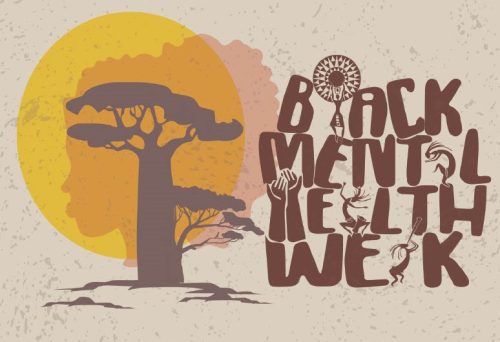

Anti-Black racism is prevalent in our society and has negative impacts on the health of Black Torontonians. Emerging research confirms that anti-Black racism takes a toll on mental health, despite the resilience of Black communities. Additionally, Black Torontonians cannot easily access culturally appropriate mental health supports and services. The City & TAIBU Community Health Centre came together to highlight the impact of anti-Black racism on the mental health of Black residents in our city, and as a first step, the City officially declared Monday, March 2, 2020, as Toronto’s first Black Mental Health Day. In 2021, the day was expanded to a week to provide greater opportunity to cultivate greater awareness of the impacts of anti-Black racism on Black communities, families and individuals. This year, the City has again partnered with TAIBU Community Health Centre to lead the initiative and animate spaces across Toronto with various community partners.
Visit Black Mental Health Week for more information.
Black Mental Health Week (BMHW) 2025 embraces the theme “Joy as Resistance,” highlighting the transformative power of joy and resilience in combating the systemic impacts of anti-Black racism. For Toronto’s Black communities, joy is not just an emotional state but a profound act of defiance and reclamation in the face of adversity. It is a celebration of identity, community, and the strength to thrive amidst systemic challenges. This year’s taglines, Celebrating Black Joy and Resilience, Choosing Hope and Joy in a Challenging World, and Reclaiming Power Through Laughter, emphasize the importance of mental health as a foundation for collective healing and empowerment.
Afrocentric principles, such as Ubuntu (“I am because we are”) and Sankofa (“returning to fetch what is at risk of being left behind”), are central to this theme. These values stress the importance of community, interconnection, and drawing from historical and cultural knowledge to foster healing and growth. By centering joy, BMHW recognizes the inherent resilience within Black communities and the role of mental health in creating spaces for restoration, creativity, and future-focused empowerment.
Studies show witnessing or being the target of anti-Black racism throughout our lifespan can have adverse affects on our mental health and physical wellbeing.
It’s not only overt racism that harms Black people’s mental and physical wellbeing. Anti-Black racism takes many forms. Black Torontonians frequently experience undue mistrust and scrutiny as a part of daily life, in workplaces, schools, public spaces, or during interactions with public institutions. Common experiences of anti-Black racism include microaggressions, difficulty in accessing appropriate care and support, and even disbelief from care providers when expressing distress or trauma.
For many Black people, these pressures result in feeling the need to practice extra vigilance to ensure their own safety, which puts extraordinary demands on their capacity for resilience.
These experiences can lead to or add to existing mental health issues, such as depression and anxiety. For Black communities, these and other mental illnesses are often overlooked and have increased rates of misdiagnosis, under-treatment, and failure to diagnose. Mental health issues can also exacerbate the risk and harm of other illnesses, for which Black communities already face increased risk, like hypertension, stroke, and heart disease.
Addressing the barriers and burdens of anti-Black racism on mental health begins with:
Neglecting these issues also hinders Black communities’ opportunities to actively participate in building a Toronto that better serves them, including the need to rally and advocate for systemic change.
Combating anti-Black racism and its impact on mental health in our community means working together. Black communities cannot address this systemic issue by themselves. Allies, who have access to audiences and opportunities, can play a significant role in the work of anti-Black racism and mental health. Whereas ‘advocacy’ is about standing up for people who cannot stand up for themselves, ‘allyship’ is to make room and space for people to stand up for themselves. Both are needed but allyship provides a lasting and meaningful solution.
If you are ready to develop a better understanding of the barriers and want to advance equity and social justice Black Mental Health Week is a good opportunity to start your journey with. Learn more about how you can become an ally at work and in your personal life.